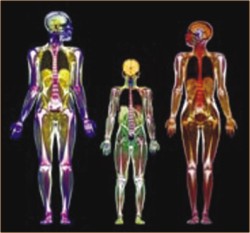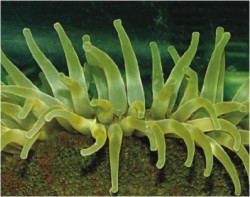| |
SCIENCE FORUM
Discovery of 'super-earths' give alien-seekers heart

European Southern Observatory
European researchers have discovered a batch of three "super-earths" orbiting a nearby star, and two other solar systems with small planets as well. Scientists at Switzerland's Geneva Observatory said their findings, presented at a conference in France, suggest that Earth-like planets may be very common. The newly detected worlds are far too close to their stellar parents to have much chance of harbouring even microbial life. Nevertheless, the discovery gave astronomers and alien life-seekers heart.
Survey suggests research misconduct is common

Research misconduct at US institutions may be more common than previously suspected, with 9 percent of scientists saying in a new survey that they personally had seen fabrication, falsification or plagiarism. The survey of 2,212 mainly bio-medical scientists at 605 universities and other research institutions, published in the journal Nature, also showed that researchers are very reluctant to report bad conduct.
Baby crocs start talking in their eggs

Baby crocodiles start chattering to one another and to their mothers just before they hatch, perhaps signalling that it is time to be born, French researchers say. The little crocs make an "umph! umph! umph!" sound right before they hatch, scientists at Universite Jean Monnet in Saint-Etienne, France, reported. Crocodile mothers react strongly to the pre-hatching calls by digging the sand, they wrote in the journal Current Biology. The sounds also seemed to spur siblings to start breaking out of their eggs. Many baby reptiles are eaten right after birth, so it may be important for them all to hatch together and for the mother to be there when they do, the biologists said.
Brain scientists discover rewards of adventure

Scientists have identified a primitive area of the brain that makes us adventurous. Using brain scans to measure blood flow, British researchers discovered that a brain region known as the ventral striatum was more active when subjects chose unusual objects in controlled tests. The ventral striatum is involved in processing rewards in the brain through the release of neurotransmitters like dopamine. Scientists believe the existence of this age-old reward mechanism indicates there is an evolutionary advantage in trying the unknown.
'Virtual man' may ease drug research woes

pricewaterhouse coopers
New computing technologies and the evolution of a "virtual man" to predict the effects of new drugs before they enter clinical trials could transform the fortunes of pharmaceutical research, says a new report. By 2020, the drug research and development process may be shortened by two-thirds, clinical trial costs slashed and productivity increased dramatically, said the report from consultancy firm Pricewaterhouse Coopers.
Why Mars is wonky

www.hubblesite.org
A giant crater made by a Pluto-sized meteor billions of years ago may explain why Mars is so lopsided, with a basin on one hemisphere and high terrain on the other, three separate teams of scientists report. The impact gouged out a hole 5,200 miles across and 6,500 miles long -- the size of the combined areas of Asia, Europe and Australia, they wrote in the journal Nature. Earth is believed to have been hit by a Mars-size object, which created the Moon, and signs of a giant impact have also been detected on Mercury.
Face value

AFP
What does a face really tell us about someone's personality? Are you a good judge of character? Perhaps you think you can judge someone's character just by looking at his or her face? Research shows that most of us -- 90 percent according to one study -- think we can. But this may not all be down to arrogance. Scientists at the Perception Lab at St. Andrews University, Scotland, are uncovering evidence that some personality traits may be written all over our faces.
Fish names confuse conservationists

About a third of all types of fish and other marine life have been wrongly named by scientists, complicating efforts to conserve what could be a million marine species, experts say. Inaugurating a World Register of Marine Species (www.marinespecies.org), they said the breadcrumb sponge, found in the North Atlantic in many shapes and colours, held the record for misleading synonyms with 56 Latin names. Co-founder of the register, Mark Costello of the University of Auckland in New Zealand, said the register, trying to sort out a tangle of multiple Latin names for marine organisms from whales to plankton, has validated names of 122,500 species after eliminating 56,400 aliases, or 32 percent of all names reviewed.
Semantic Web to give 'real answers'

The days of trawling through irrelevant search engine results on the web may soon be over. Instead browsers will navigate in search of answers, not web pages, and users will be able to ask the web real questions, rather than perform searches for certain phrases. This so-called "semantic web," devised by internet pioneer Tim Berners-Lee, may finally be coming into being. |









